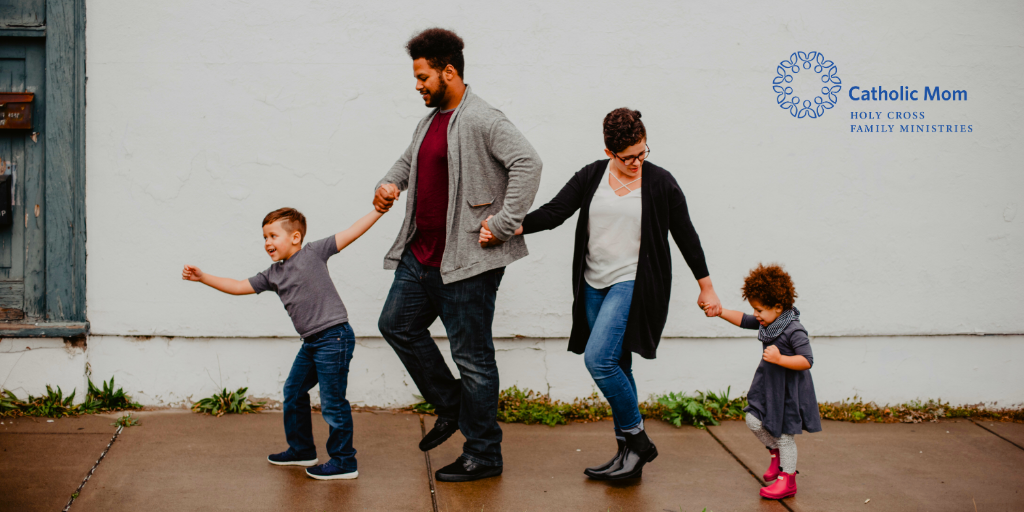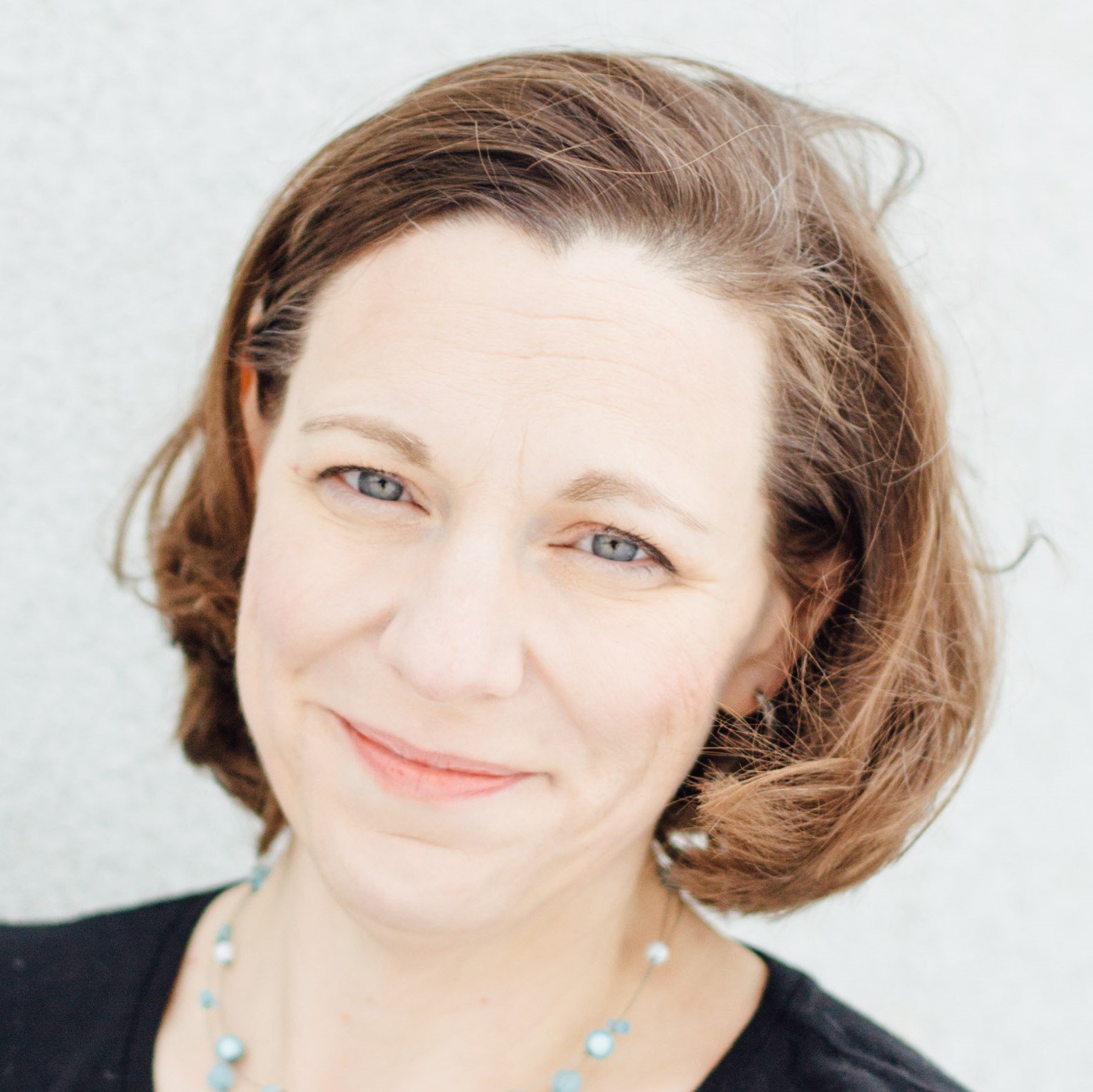
Erin McCole Cupp opens up about parenting differently than we were parented and how to have hope when our efforts seem to miss the mark.
When I first started thinking about becoming a mother, even before I was married, I had a long list of things I was not going to do to my kids. I wasn’t going to scream at them for leaving one speck of dirty food on a dish they’d washed. I wasn’t going to make fun of them for how much they ate or didn’t eat. I wasn’t going to tell them how to dress or do their hair. I wasn’t going to tell them to stop crying or lose my absolute mind when I had to brush their hair. I wasn’t going to make them hug anyone, not even me.
I told myself that if I could just get this parenting thing right in a way that my parents and their parents before them clearly hadn’t, then everything would be okay, and we’d all have great lives. All I had to do was work really hard at getting better and I’d break all the generational cycles that had gone into making me an anxious, compulsive, angry mess. Then I would inevitably churn out offspring who were safe, healthy, affectionate, secure, and most of all, reasonably happy in this world and aiming towards being happy forever in the next.
I’d had big ambitions of breaking the cycle, planting my feet firmly and telling myself repeatedly, “The intergenerational trauma buck stops here!” I look now at my pre-parenting list of “don’ts,” though, and where I don’t see my own hypocrisy for doing things I vowed I’d never do (clue: my kids were very happy to take over the hairbrush as soon as they could), I see where I overshot.
Example: I didn’t make my kids hug me when they didn’t want to, but I also don’t seem to have taught them that hugs are good things and help us feel loved. Thus, for all my intergenerational buck-stopping energy, too often it feels like I just tapped the brakes on the intergenerational trauma train. I simply didn’t make the impact I’d set out to make.
Validation
If all of that tugs at your own hurting heart, you are clearly not alone. However, the very fact that you and I wanted to be different parents than the ones we had says something good about us. However, we do need to put into perspective our efforts at loving our kids well instead of teaching them merely to fear our displeasure or wrath.
If we think about how brief our lives are in comparison to the centuries of generations that have gone before us, we can understand that expecting to undo all of that ourselves is unreasonable. Sure, we’re capable of amazing things, but if we’re honest with ourselves, it’s unrealistic to expect that we could not only make ourselves perfect but also put an absolute halt to the behavioral teachings of a literally infinite number of ancestors.
Yes, we did our best. Yes, that best caused a little harm — or a lot. But God hasn’t let a single generation of us (read: normal, run-of-the-mill, not Jesus or Mary people) turn out perfect yet. Why would we assume we could do so ourselves?

Affirmation
Too many parents raise their kids mindlessly. The fact that you and I consciously have tried and are trying to parent lovingly is in and of itself different. Our shortcomings do not surprise God, nor do they diminish us in his eyes.
Further, perfection actually is one of the least helpful ways to build connection between parent and child. What does build resilient family relationships, however, is something called the “rupture repair cycle.” Our love grows stronger in the places it's been healed after a break.
Accountability to our kids for our shortcomings is the one true cycle-breaking superpower. We might have tapped on the brakes, but tap on the brakes enough through apology and changed behavior, and that intergenerational train really does start to slow down and become a safer vehicle for our children and any future generations that may come from them. Besides, slamming on the brakes can cause its own damage.
Inspiration
Learning how to cope with pain without transmitting it is what defines a cycle-breaker — not a complete lack of transmission, but the learning. Sometimes the pain we learn to cope with comes from seeing the results of our own imperfections and how they affect those we love the most: our children.

Our parenting failures are not the end of the story, though. We tap on the brakes when we apologize for the harms we cause, open up honest dialogue, model healthy relationship skills with other adults, and show rather than tell our kids that we are worthy of their trust. Often enough, all of that will take professional help. If you’ve come from a long line of people who’ve eschewed help from mental health professionals, well, reaching out for that kind of help is just another way for you to tap on those brakes.
Eventually those brake taps will become a gentle, reliable press, if not in our own generation, in the next and then the next. Even then, we don’t have the power to stop all pain that gets passed down from parent to child. We do, however, have the power to make things better, in our own time, in our own ways, with God’s help. That’s how, in the end, everything will be okay.
Share your thoughts with the Catholic Mom community! You'll find the comment box below the author's bio and list of recommended articles.
Copyright 2025 Erin McCole Cupp
Images: Canva
About the Author

Erin McCole Cupp
Erin McCole Cupp, CTRC, is grateful to be recovering from compulsive overeating, binge eating behaviors, and developmental and betrayal trauma. As a Certified Trauma Recovery Coach™, she coaches, writes and teaches about trauma and addiction recovery from a Catholic perspective. Take her quiz, “What kind of stress eater are you?” at ErinMcColeCupp.com.


.png?width=1806&height=731&name=CatholicMom_hcfm_logo1_pos_871c_2728c%20(002).png)
Comments